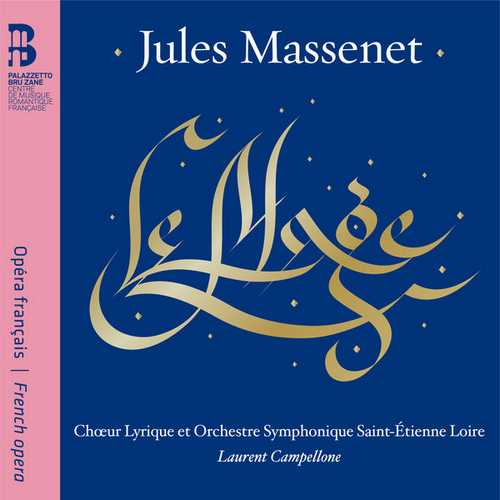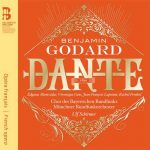

Composer: Jules Emile Frederic Massenet
Performer: Catherine Hunold, Kate Aldrich, Luca Lombardo, Jean-François Lapointe, Marcel Vanaud, Julien Dran, Florian Sempey, Chœur Lyrique Saint-Étienne Loire
Orchestra: Orchestre Symphonique Saint-Étienne Loire
Conductor: Laurent Campellone
Number of Discs: 2
Format: FLAC (tracks)
Label: Bru Zane
Catalogue: ES1013
Release: 2013
Size: 1.3 GB
Recovery: +3%
Scan: yes
Le mage
CD 01
01. Acte I
02. Prélude
03. “Lâ léï à ! …”
04. “Annonce à Zarâstra que je suis arrivé…”
05. “Jour béni par les dieux”
06. “Pourquoi lui rester rebelle ?”
07. “Il ne m’aime pas !”
08. “Comme il la contemple amoureusement…”
09. “Lâ léï à !…”
Acte II Premier tableau
10. “C’est lui ! Le héros ! Le vainqueur !”
11. “Ah ! Comme ils déchirent mon coeur…”
12. “Où fuis-tu, Varedha…”
13. “Ah ! Dans l’orgueil dont il est enivré…”
Acte II Deuxième tableau
14. “Grand Roi, dans un instant…”
15. “Ô Roi, ton serviteur te salue”
16. “Ah ! Parais ! …”
17. “Grand Roi, par ta captive…”
18. “Arrête, ô Roi ! …”
19. “Tu me parlais d’une plus douce voix…”
20. “Ô Roi juste, et vous tous…”
21. “Voici le juste arrêt…”
CD 02
Acte III
01. “Sur la montagne sacrée…”
02. “Ahoura-Mazda, Dieu tout-puissant…”
03. “Heureux celui dont la vie…”
04. “Hélas ! Me voilà seul…”
05. “J’oublierai tout, j’en ai la force…”
06. “Moi, Varedha, je te plains ! …”
07. “Sous tes coups…”
08. “Ni dans la mort, ni dans la vie…”
Acte IV
09. “Djahi ! …”
10. Andante lento
11. Allegretto con moto
12. Allegro moderato
13. Lent
14. Allegro moderato
15. Presto
16. Allegro
17. Andantino
18. Allegretto con moto
19. “Djahi ! Djahi !” (Allegro vivo)
20. “Prêtres, l’heure est venue…”
21. “Fais fleurir, ô sainte ivresse…”
22. “Non ! non ! non ! …”
23. “Ah ! Si tu m’aimes, sois bon…”
24. “Ton pays adoré…”
25. “Enfin je suis vengée ! …”
26. “À mort ! À mort ! …”
Acte V
27. Prélude
28. “Rien ! Il ne reste rien !”
29. “Anahita ! Vivante !”
30. “Va, ce Dieu dont je suis le mage…”
31. “Grands dieux !”
32. “Djahi ! …”
In 1891, the elusive Jules Massenet once again dumbfounded the critics. After the success of Manon (1884), he had been expected to return to the subtleties of the opéra-comique genre, but instead he revived the Romantic grand opera, as exemplified by his Hérodiade and Le Roi de Lahore. With its exotic setting (an imaginary Persia), supernatural elements, and love sublimated by religion, Le Mage is a composite and varied work, but above all one that represents the apotheosis of French lyricism at the time of the quarrels over the works of Wagner.



